Walking is one of the most accessible, low-impact, and beneficial forms of exercise. Whether you’re walking for leisure, fitness, or as part of a daily routine, understanding how long it takes to walk 7 miles can be crucial in planning your schedule and tracking your progress. One commonly discussed distance is 7 miles, a distance that provides a substantial workout and numerous health benefits.
In this guide, we’ll delve deeply into the factors that affect how long to walk 7 miles, the calories burned walking 7 miles, and tips to optimize your walking routine. We will also explore various benefits and practical strategies to maintain a regular walking habit.
What Factors Affect Walking Time for 7 Miles?
Age and Its Impact on Walking Time
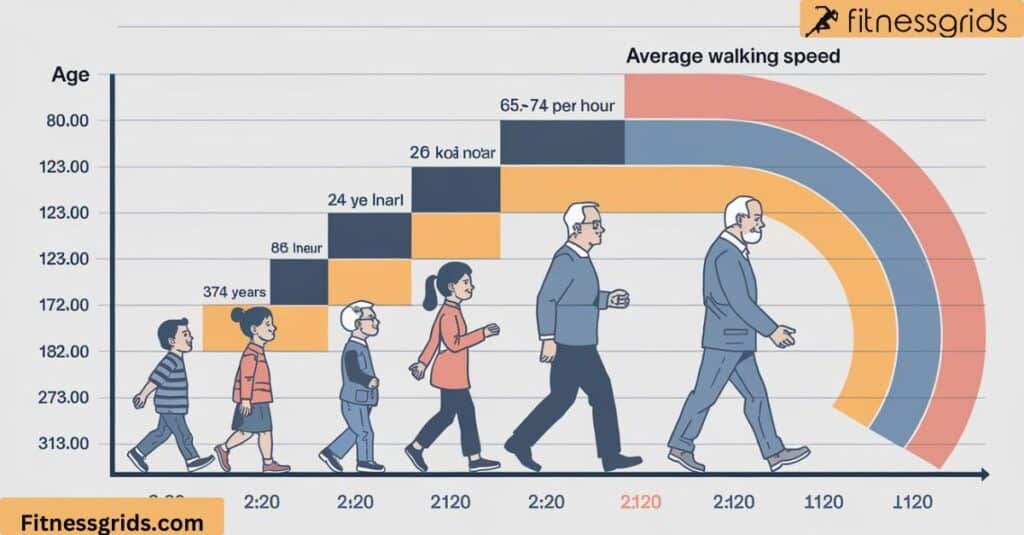
The influence of age on walking speed is profound. Younger individuals typically possess greater muscle mass, endurance, and agility, allowing them to maintain a brisker pace. However, as we age, several factors—including decreased muscle mass, joint mobility, and overall stamina—may slow down walking speeds.
Studies show that individuals in their 20s and 30s often walk at speeds of around 3.5 to 4 miles per hour. This pace would mean a 7-mile walk would take between 1.75 to 2 hours. On the other hand, those aged 50 and older may slow down to speeds of 2.5 to 3 miles per hour, stretching the duration to about 2.33 to 3 hours.
| Age Group | Average Walking Speed (mph) | Estimated Time to Walk 7 Miles |
|---|---|---|
| 18-30 years | 3.5-4.0 | 1.75-2.0 hours |
| 31-50 years | 3.0-3.5 | 2.0-2.33 hours |
| 51-65 years | 2.5-3.0 | 2.33-2.8 hours |
| 65+ years | 2.0-2.5 | 2.8-3.5 hours |
This breakdown clearly shows that age plays a significant role in determining how long it takes to walk 7 miles, with older adults generally taking longer to cover the same distance compared to younger walkers.
Gender Differences in Walking Speed
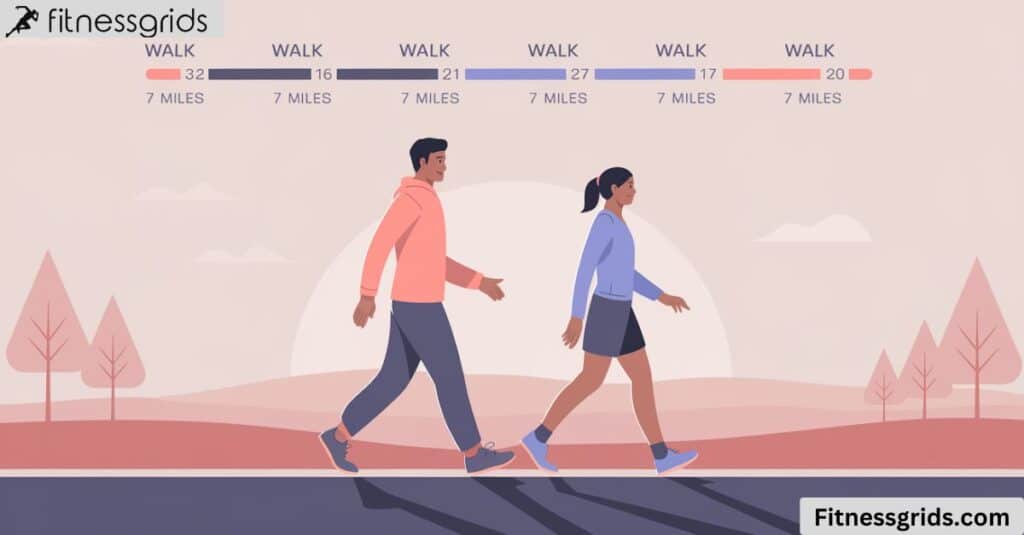
Research indicates that men generally have a faster walking pace compared to women, primarily due to physical differences such as larger muscle mass and stride length. While gender does play a role, the gap isn’t significant enough to drastically affect the time it takes to walk 7 miles for fit individuals of either gender.
| Gender | Average Walking Speed (mph) | Time to Walk 7 Miles |
|---|---|---|
| Men | 3.5-4.0 | 1.75-2.0 hours |
| Women | 3.0-3.5 | 2.0-2.33 hours |
Gender differences aside, it’s important to consider individual fitness levels and training, which can mitigate these differences. For example, women who engage in regular fitness routines may be just as fast or even faster than their male counterparts.
Height and Stride Length
Height plays a significant role in determining stride length, and ultimately, how long it takes to walk a particular distance. Taller individuals tend to have longer legs, resulting in longer strides, meaning they cover more ground with each step. This allows them to complete 7 miles faster than shorter individuals with shorter strides.
For example, someone who is 6 feet tall may have an average stride length of 2.5 feet, which would require them to take approximately 11,200 steps to walk 7 miles. In contrast, someone who is 5 feet tall may have a stride length of 2.2 feet, requiring about 12,727 steps to complete the same distance.
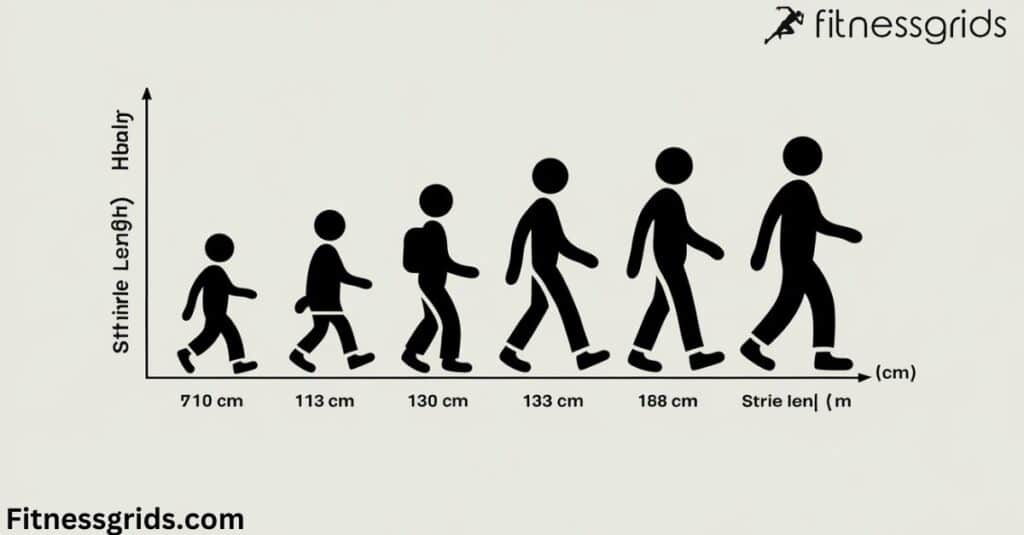
| Height | Average Stride Length (feet) | Number of Steps to Walk 7 Miles |
|---|---|---|
| 6’0″ | 2.5 | 11,200 |
| 5’5″ | 2.3 | 12,000 |
| 5’0″ | 2.2 | 12,727 |
This difference in stride length means taller individuals generally complete a 7-mile walk faster than shorter individuals.
Fitness Level and Walking Speed

One of the most critical factors affecting walking time is fitness level. Individuals who regularly engage in physical activities—whether it be walking, running, or other forms of cardiovascular exercise—tend to walk faster and for longer periods without becoming fatigued.
For those with a high fitness level, maintaining a pace of 3.5 to 4 miles per hour is comfortable, allowing them to complete a 7-mile walk in less than 2 hours. On the other hand, individuals with lower fitness levels or those new to walking may walk at a slower pace of around 2.5 to 3 miles per hour, increasing the total time.
Building cardiovascular endurance and increasing muscle strength through regular training can help improve walking speed over time, shortening the overall duration it takes to walk 7 miles.
Walking Posture and Technique
Proper walking posture and technique play an essential role in walking efficiency. Poor posture not only slows you down but can also lead to fatigue, discomfort, and even injury over longer distances. Here are some posture and technique tips to ensure you walk as efficiently as possible:
- Head up: Always keep your head upright and eyes forward. Avoid looking down at your feet, as this can strain your neck.
- Relaxed shoulders: Keep your shoulders relaxed and back, avoiding any tension or hunching.
- Engaged core: A strong core supports your posture and balance, reducing fatigue in your legs and back.
- Natural arm swing: Swing your arms naturally as you walk to help maintain momentum and pace.
- Even stride: Focus on taking smooth, even strides. Pushing too hard with long strides can tire you faster, while too short of steps may slow you down.
By maintaining proper body mechanics, you can conserve energy and potentially reduce your walking time for 7 miles.
Terrain and Weather Conditions
Terrain is another factor that greatly impacts how long it takes to walk 7 miles. Walking on a flat, smooth surface like a sidewalk or paved road allows for a faster pace compared to walking on uneven terrain, such as gravel, sand, or hiking trails.

| Terrain Type | Average Speed (mph) | Time to Walk 7 Miles |
|---|---|---|
| Flat pavement | 3.5-4.0 | 1.75-2.0 hours |
| Hilly terrain | 2.5-3.0 | 2.33-2.8 hours |
| Hiking trails | 2.0-2.5 | 2.8-3.5 hours |
| Sand | 1.5-2.0 | 3.5-4.0 hours |
Additionally, weather conditions such as temperature, humidity, and wind can affect your walking speed. Walking in ideal conditions—mild temperatures, low humidity, and a slight breeze—will allow for faster speeds. On the other hand, extreme heat, cold, or windy conditions can slow your pace and increase the time it takes to walk 7 miles.
| Weather Condition | Effect on Walking Time |
|---|---|
| Hot and humid | Slower pace due to heat exhaustion and sweating |
| Cold and windy | Increased resistance, leading to slower speeds |
| Mild and clear | Optimal for faster walking times |
| Rainy or snowy | Slippery surfaces may require slower, cautious walking |
Time Estimates Based on Walking Speed
Now that we’ve covered all the factors influencing walking speed, let’s look at some practical estimates for walking time for 7 miles based on different walking speeds:
| Walking Speed (mph) | Estimated Time to Walk 7 Miles |
|---|---|
| 2.0 mph | 3.5 hours |
| 2.5 mph | 2.8 hours |
| 3.0 mph | 2.33 hours |
| 3.5 mph | 2.0 hours |
| 4.0 mph | 1.75 hours |
As shown in the table above, walking at a moderate pace of 3.0 mph will take about 2.33 hours to cover 7 miles. Increasing your speed to 4.0 mph will reduce the time to around 1.75 hours, while walking at a slower pace of 2.0 mph can extend the walk to 3.5 hours.
How Many Calories Are Burned Walking 7 Miles?
One of the key benefits of walking is its ability to burn calories, making it a popular choice for those looking to lose weight or maintain a healthy weight. The number of **calories
burned walking 7 miles** depends on several factors, including your body weight, walking speed, and the terrain you are walking on.
Calories Burned Based on Weight and Speed
Here’s a table that estimates calorie expenditure for walking 7 miles, based on body weight and walking speed:
| Body Weight (lbs) | Calories Burned at 2.0 mph | Calories Burned at 3.0 mph | Calories Burned at 4.0 mph |
|---|---|---|---|
| 130 | 450 | 525 | 630 |
| 160 | 550 | 630 | 750 |
| 190 | 650 | 735 | 875 |
| 220 | 750 | 840 | 1000 |
As the table demonstrates, individuals weighing 160 pounds and walking at 3.0 mph would burn approximately 630 calories by walking 7 miles. This makes walking an excellent form of exercise for those seeking to burn calories and reduce body fat.
Walking for Weight Loss
To lose weight, you need to create a calorie deficit, meaning you burn more calories than you consume. Walking 7 miles daily can contribute significantly to your calorie deficit, especially when combined with a balanced diet.
For example, a daily calorie deficit of 500 to 1,000 calories can result in a steady weight loss of about 1 to 2 pounds per week. This slow, steady weight loss approach is generally considered healthier and more sustainable than rapid weight loss.
By walking 7 miles daily, you can burn anywhere from 500 to 1,000 calories depending on your weight and speed, making it an excellent tool for weight management and overall fitness.
Health Benefits of Walking 7 Miles
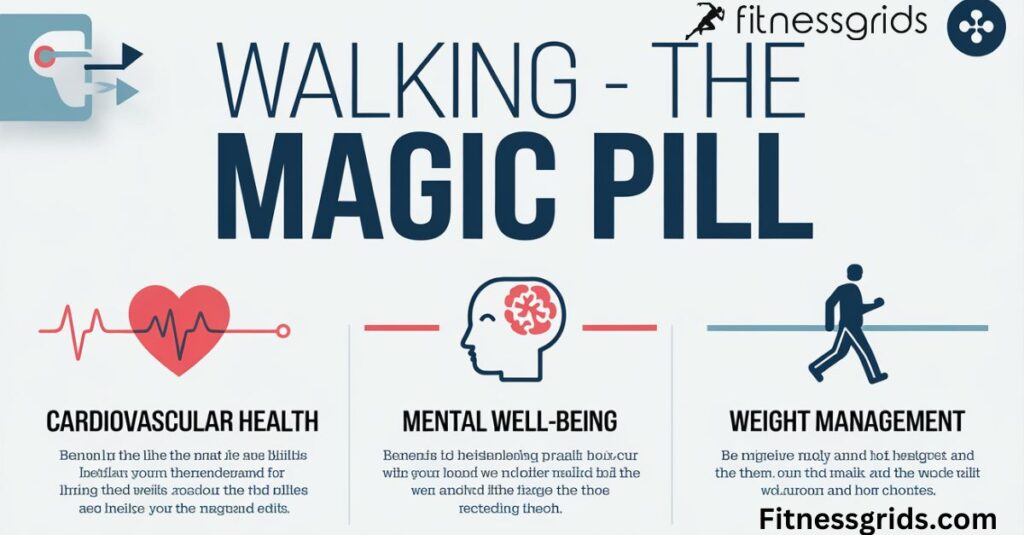
Walking 7 miles a day provides numerous health benefits, from improving cardiovascular health to enhancing mental clarity. Let’s take a closer look at the various physical and mental health advantages of incorporating a daily 7-mile walk into your routine.
Cardiovascular Health
Walking is a cardiovascular exercise that strengthens the heart, improves circulation, and lowers blood pressure. Regular walking can reduce the risk of heart disease, stroke, and other cardiovascular conditions.
- Fact: The American Heart Association recommends at least 150 minutes of moderate-intensity exercise (such as walking) per week to maintain cardiovascular health.
Walking 7 miles daily can exceed this recommendation, ensuring that your heart remains strong and healthy. Additionally, walking helps to lower LDL (bad) cholesterol levels while raising HDL (good) cholesterol levels.
Bone and Muscle Strength
Walking is also excellent for maintaining and improving bone strength. It’s a weight-bearing exercise, meaning it helps strengthen bones and reduces the risk of osteoporosis, especially in older adults. Walking also engages several muscle groups, including the legs, core, and back, helping to build and maintain muscle strength and endurance.
Mental Health Benefits
Walking doesn’t just benefit the body—it’s also highly beneficial for the mind. Walking has been shown to reduce symptoms of anxiety and depression, boost mood, and improve cognitive function.
- Mood Enhancement: Walking outdoors, especially in natural surroundings, can elevate your mood by reducing levels of stress hormones like cortisol.
- Improved Focus and Creativity: Walking has been linked to enhanced creative thinking and problem-solving abilities. Many people report feeling more focused and productive after a brisk walk.
- Stress Reduction: Physical activity like walking helps release endorphins, the brain’s natural “feel-good” chemicals, which reduce stress and promote relaxation.
Regular walking, especially in the morning or during times of mental stress, can greatly enhance your mental clarity and mood.
Weight Management
As discussed earlier, walking 7 miles burns a significant number of calories, making it a powerful tool for weight management. Whether your goal is to lose weight, maintain your current weight, or simply stay active, walking is a sustainable, low-impact exercise that can be tailored to your fitness level and goals.
Walking also helps to improve metabolism, which means your body burns calories more efficiently even when at rest.
Boosts Immune System
Recent research suggests that regular physical activity, such as walking, can strengthen the immune system. Walking stimulates the production of immune cells like lymphocytes, which help fight off infections and diseases.
Incorporating a daily 7-mile walk into your routine can enhance your body’s ability to fend off illnesses like the common cold, flu, and other infections.
Practical Tips for Walking 7 Miles a Day
If you’re aiming to walk 7 miles a day, here are some practical walking routine tips to help you achieve your goals and optimize your walking experience.
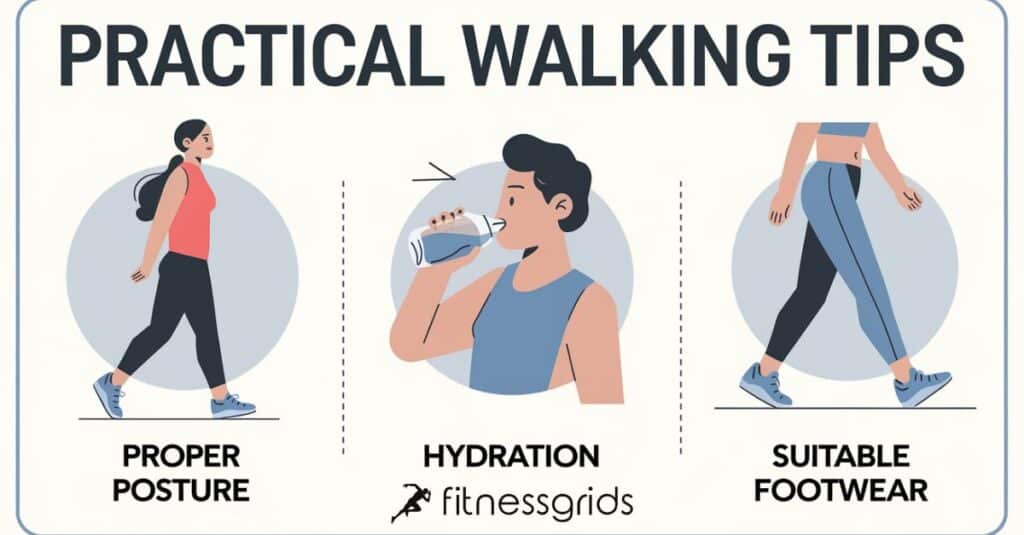
Start Small and Build Up
If you’re new to walking or haven’t walked long distances before, it’s essential to start small. Begin with shorter distances, such as 2 or 3 miles, and gradually increase the distance as your endurance improves. Starting small prevents burnout and reduces the risk of injury.
Break It Up into Sections
If finding time to walk 7 miles in one go seems overwhelming, break it up into smaller sections throughout the day. For example:
- Morning Walk: 2.5 miles
- Lunch Break Walk: 2 miles
- Evening Walk: 2.5 miles
Breaking up the distance into manageable chunks makes it easier to fit walking into your daily schedule and keeps you motivated.
Track Your Progress
Using a fitness tracker or smartphone app can help you monitor your steps, distance, calories burned, and overall progress. Apps like Fitbit, Strava, and MyFitnessPal allow you to set goals and track your achievements, helping you stay consistent and motivated.
Stay Hydrated and Fuel Your Body
Walking 7 miles requires energy, so it’s essential to stay hydrated and fuel your body with healthy, nutritious foods. Drink plenty of water before, during, and after your walk to prevent dehydration. Eating a balanced diet rich in fruits, vegetables, whole grains, and lean proteins will give you the energy needed to complete long walks.
Wear the Right Shoes
Proper footwear is crucial for preventing discomfort and injury during long walks. Invest in a pair of comfortable, supportive walking shoes that fit well and provide cushioning for your feet. Wearing the right shoes helps to prevent blisters, foot pain, and joint problems.
Walk with a Friend
Walking with a friend, family member, or walking group can make the experience more enjoyable and provide accountability. Having someone to talk to during your walk makes the time pass more quickly and helps you stay motivated to complete the distance.
Asked Questions
How long does it take to walk 7 miles on average?
On average, it takes between 1.75 to 3.5 hours to walk 7 miles, depending on your walking speed, fitness level, terrain, and weather conditions.
What factors affect walking time for 7 miles?
Factors that affect walking time include your age, fitness level, stride length, terrain, weather conditions, and walking posture. Each of these factors can either speed up or slow down your walking time.
Is walking 7 miles a day too much?
For most people, walking 7 miles a day is achievable and provides significant health benefits. However, if you’re new to walking or have any underlying health conditions, it’s essential to start slow and consult with a healthcare provider before embarking on long-distance walking routines.
How can I track my walking distance and calories burned?
You can use a fitness tracker, pedometer, or smartphone app like Fitbit, Strava, or MyFitnessPal to track your walking distance, steps, and calories burned. Many of these tools allow you to set daily goals and monitor your progress over time.
Conclusion: How Long Does It Take to Walk 7 Miles?
In conclusion, walking 7 miles can take anywhere from 1.75 to 3.5 hours depending on factors such as age, gender, fitness level, terrain, and weather conditions. Walking 7 miles a day provides numerous health benefits, including improved cardiovascular health, weight management, enhanced mental clarity, and stronger muscles and bones.
By incorporating the tips and strategies outlined in this guide, you can optimize your walking routine, track your progress, and enjoy the physical and mental health benefits of walking long distances. Whether you’re walking for fitness, weight loss, or mental well-being, 7 miles a day is a rewarding and achievable goal for anyone looking to lead a healthier lifestyle.

I’m Flix Hart, the creator of Fitness Grids, where I share valuable insights and content related to health, fitness, and overall well-being. My goal is to inspire and guide readers towards a healthier, more active lifestyle







